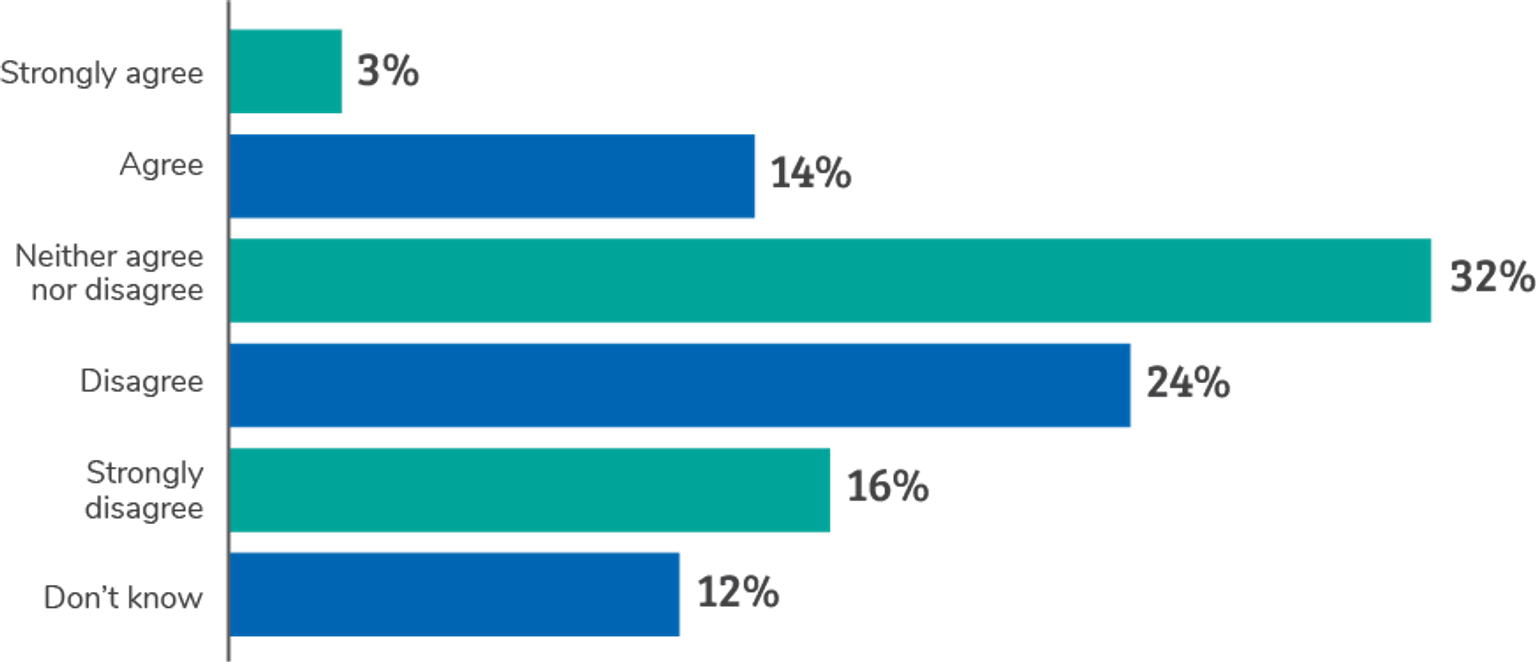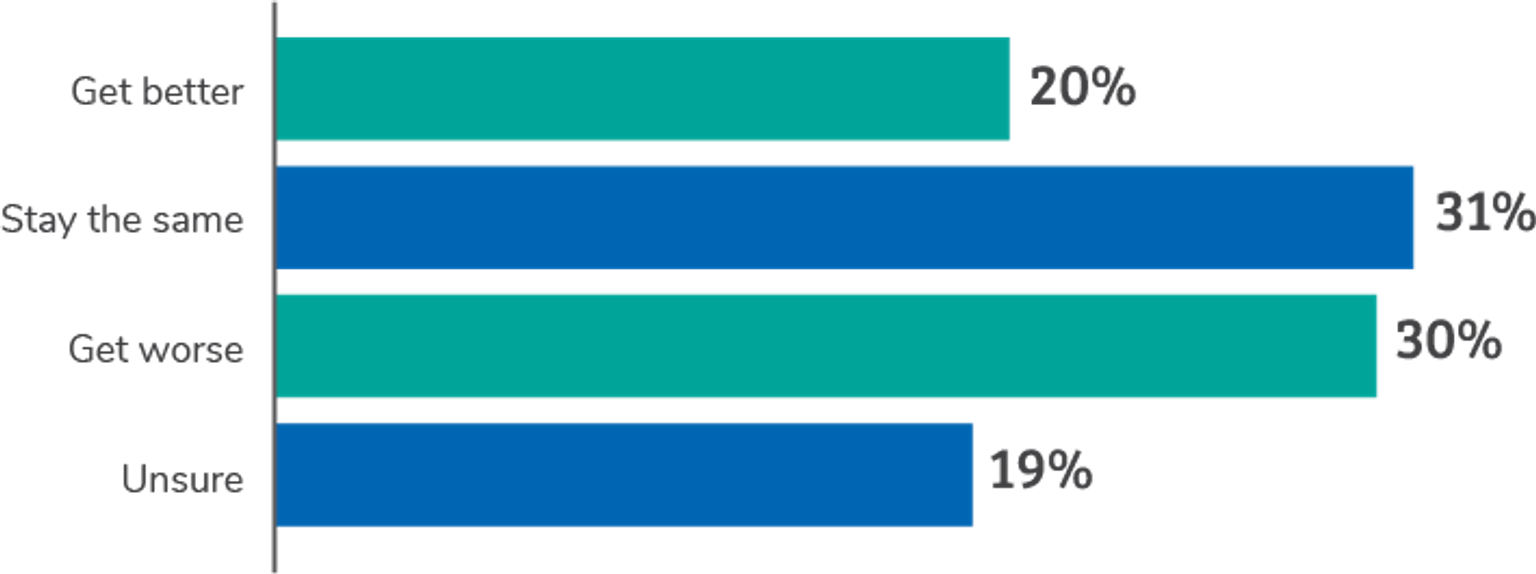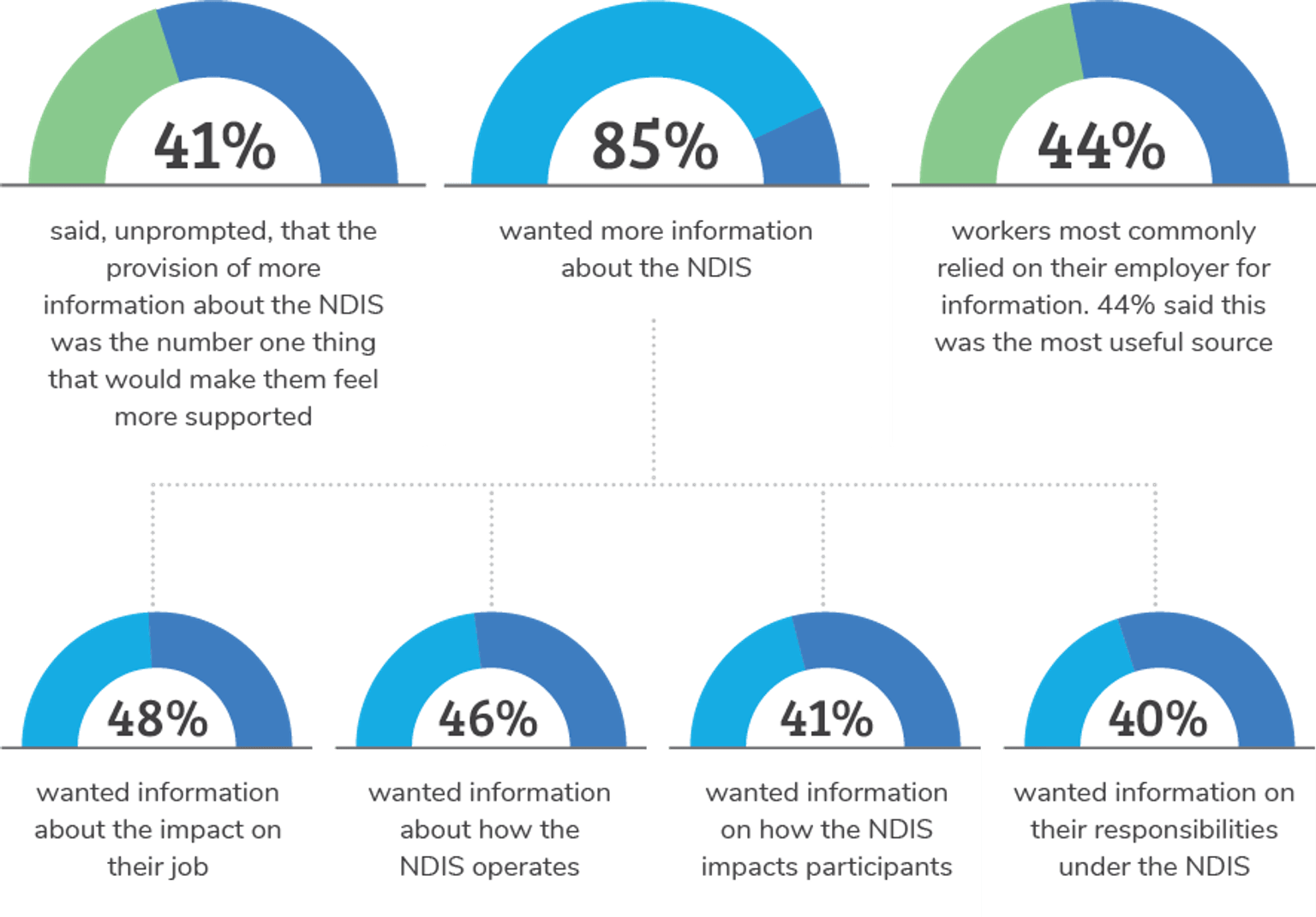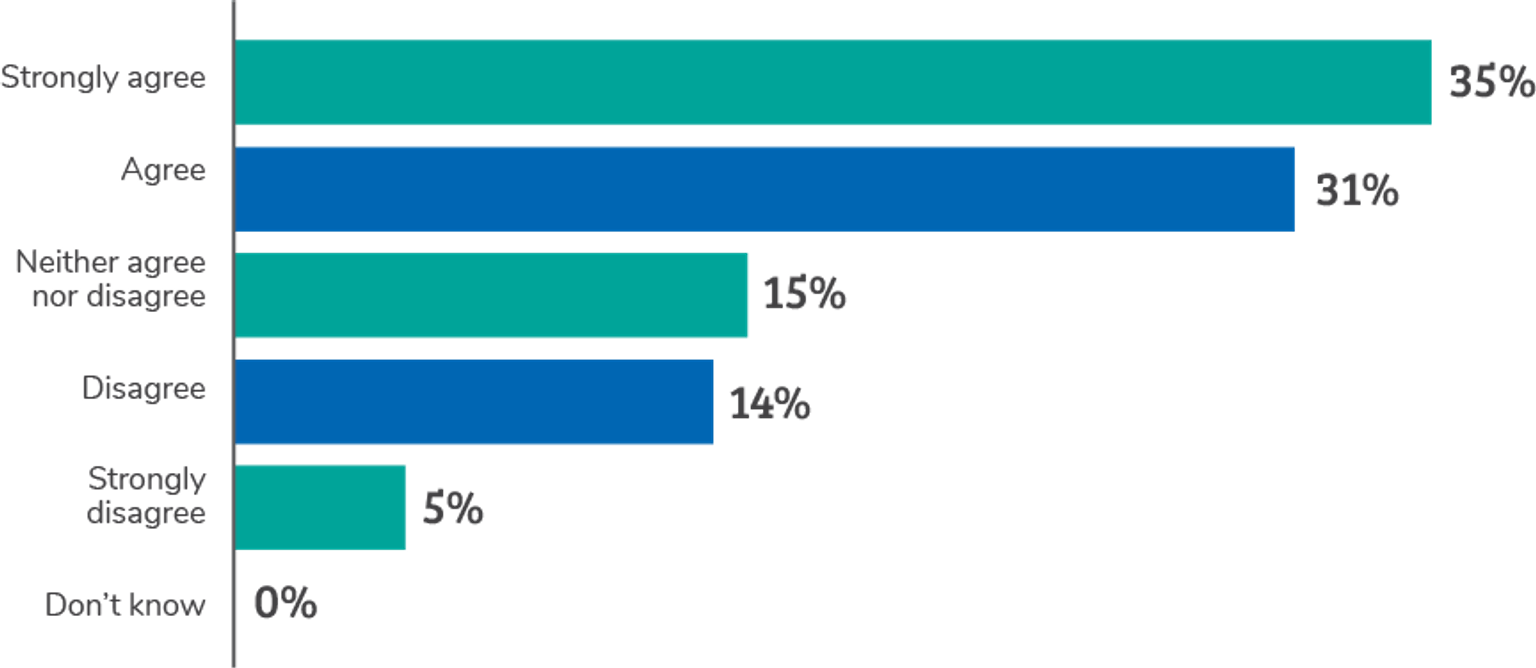Challenge: There is anxiety and uncertainty about the NDIS
There were mixed perspectives on whether the NDIS is a positive change for workers.
Many workers we spoke to were feeling very anxious about the future and what the NDIS would mean for them and their work. Those not yet working under the NDIS were unsure about what to expect, while those under the NDIS were unsure about what it would mean for them longer term.
More participants thought their work would get worse than get better.
Often, this anxiety seemed to occur because workers were not informed. They had not been told how their job would look under the NDIS, what it would mean for their job security and hours and what would be expected of them in the new environment. In addition, workers struggled to find information to help their clients understand the NDIS.
Challenge: workers lack the information they need about the NDIS
Many found that the information they did receive was too generic, contradictory, delivered too late or constantly changing. In the absence of more formal information, social media and personal networks have become valued sources of information.
Workers emphasised that information about the NDIS needs to be delivered well ahead of rollout, tailored to their clients and setting, delivered through a variety of channels and focused on the impact of the NDIS on workers as well as participants.
Quotes from focus groups and in-depth interviews
"We still don’t have enough information on whether NDIS’s ever changing processes are going to make a difference to our clients and it’s not being consistent from what I have been looking at."
"A lot of the literature is all about ‘choice and control’ – there are big slogans and catchphrases, but the information is so general it’s not really useful. Every time I’d go [to an information session], I’d have massive anxiety because I’d come out more confused."
"What we really need is discipline specific, region specific, role specific information. What do I need to know as a Paediatric Occupational Therapist prescribing equipment?"
Challenge: Workers are concerned about the NDIS’s impact on job security and job quality
Over half agreed the NDIS limits their job security
When asked: ‘The NDIS limits my job security’ …
- 26% strongly agreed
- 25% agreed
- 22% neither agreed nor disagreed
- 15% disagreed
- 3% strongly disagreed
- 9% said they didn’t know
There was a lot of anxiety about the NDIS impacting job security because of the changed funding model. Many workers did not know if their job would still exist in the future, or worried that only casual work would be available to them.
While some workers liked the flexibility of casual work, for others this was a very frightening prospect and had a real impact on life decisions, such as whether to have kids or buy a house. Some also worried about the impact of a casualised workforce on their clients, who might lose continuity of care.
While workers generally expected that there would be more work available under the NDIS because of an overall increase in funding to the sector, there was concern that this would be poorer quality work, with fragmented hours and fewer benefits. Some worried this could mean that more qualified workers would choose management or administrative roles with greater security rather than roles working directly with participants.
Quotes about job security and job quality
"I’m going to have to go into the management stream now. I’d much rather be at the coalface but I have a family to support."
"The attitude that workers are plug in and plug out… it’s offensive for workers because it impacts on their daily life, having to travel from here to here, at whatever time they chose."
"Shorter shifts, they’re definitely having an impact. People who need to have a shower, they need to hire someone for an hour to have a shower, get out of bed. There’s more to life than that."
"Someone’s sick for six weeks and don’t require service, and I’m booked to work with them, what do I do without six weeks’ pay? Do I have someone looking out for me and saying you can work somewhere else?"
Challenge: Workers see the NDIS as reducing time and funding for things that matter
Of the 779 workers who took part in the research:
- 39% agreed that the NDIS meant less time on what matters most
- 21% disagreed the NDIS meant less time on what matters most
Many workers were working under a new model of billable hours, leaving very little time or funding for non-client facing work. This often meant a reduction in training, teamwork and supervision, and in workers feeling less safe and confident at work.
Most importantly for workers, it also meant that the time they could spend with clients was restricted to the number of hours in a client’s plan. This sometimes had an impact on workers’ ability to build relationships with their clients and provide holistic support. At the same time, the NDIS often increased demands on workers in terms of paperwork or providing information to clients, which increased job stress.
Quotes about time
"For me who cares about clients and got into the job because I want to make a positive difference, NDIA doesn’t allow for that stuff. You’d have to do it out of hours."
"I have really tough days. When you’re working in that environment, you need a little bit of down time. If I had an experience like that prior to the NDIS, I’d go to the office and say I need to debrief and have a coffee with someone. Under the NDIS, you don’t have time to do that, you have to be billing all the time."
Reduction in training
Many workers worried the NDIS would reduce the amount of training they received. Often, employers were no longer providing back-fill for staff to attend training, and those working under the NDIS reported lower levels of access to training than those not yet transitioned.
Losing access to training meant workers missed out on best practice approaches to supporting their clients, and opportunities to network and find out about career opportunities within the sector. For many workers, this also meant that they felt less valued by their employer.
Quotes from focus groups and in-depth interviews about training
"Training should be a commitment that sits outside the NDIS, a commitment to creating a skilled workforce."
"We used to get more training in the past. But now it’s all online. People don’t have time to do it properly. It’s a tick a box exercise."
"The biggest barrier to training is staffing –we can’t just leave our clients, so we have to take turns to go."
"How much does my organisation and the NDIS value me if they won’t even equip me with the correct training that I require?"
Updated



